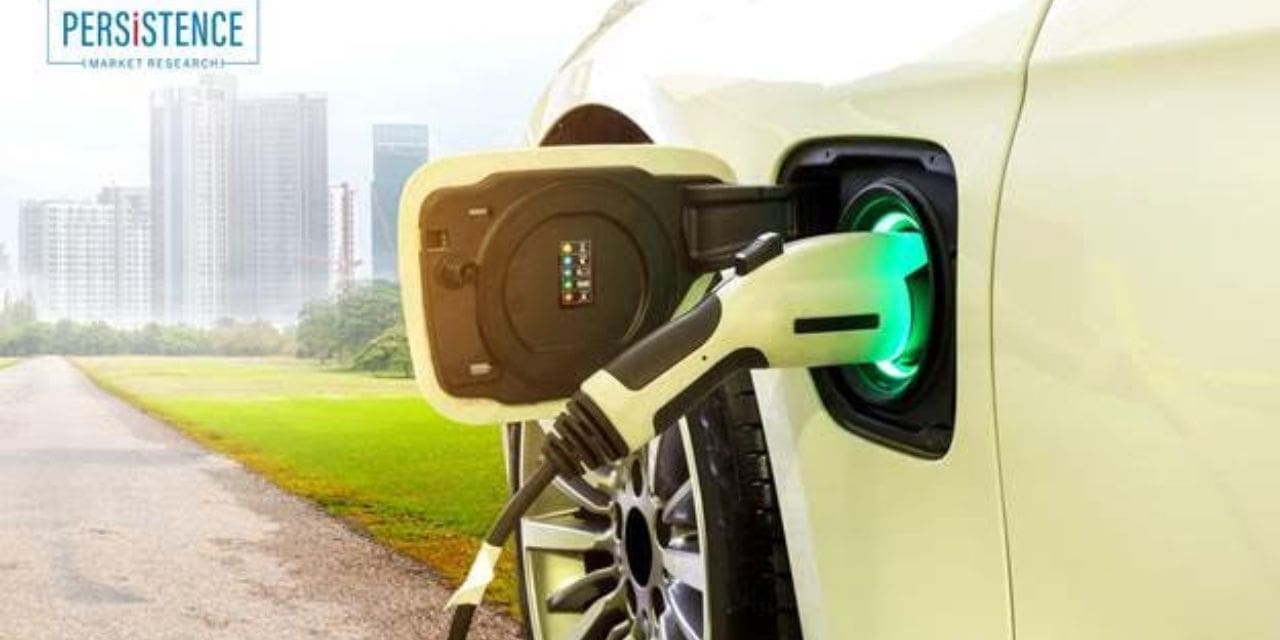The global automotive industry is experiencing a significant shift towards sustainability, driven by environmental concerns and regulatory mandates aimed at reducing carbon emissions. In this transformative landscape, plug-in hybrid electric vehicles (PHEVs) have emerged as a promising solution, offering a balance between traditional internal combustion engines and fully electric vehicles. This article explores the steady expansion of the PHEV market and its role in promoting sustainable transportation.
Plug-in Hybrid Electric Vehicles (PHEVs) are vehicles that combine a conventional internal combustion engine propulsion system with an electric propulsion system. These vehicles can be charged from an external power source and offer extended electric driving ranges, reducing reliance on fossil fuels and lowering emissions. According to Persistence Market Research, the global plug-in hybrid electric vehicles (PHEV) market size was valued at USD 122 billion in 2022 and is expected to hit around USD 295.5 billion by 2032 with a remarkable CAGR of 9.3% from 2023 to 2032. The increasing adoption of electric vehicles, coupled with government initiatives to reduce carbon emissions, is driving market expansion.
The Rise of Plug-in Hybrid Electric Vehicles:
Plug-in Hybrid Electric Vehicles represent a pivotal bridge between conventional gasoline-powered cars and fully electric vehicles. They feature both an internal combustion engine and a battery-powered electric motor, offering drivers the flexibility to rely on electricity for short trips and seamlessly switch to gasoline for longer journeys. This dual-power system addresses the range anxiety often associated with pure electric vehicles, making PHEVs an attractive choice for a diverse range of consumers.
Environmental Considerations Driving Adoption:
As global awareness of climate change and environmental sustainability grows, consumers are increasingly seeking greener transportation options. PHEVs emerge as a compelling solution, as they allow drivers to reduce their carbon footprint by relying more on electric power for daily commuting while retaining the flexibility of a conventional gasoline engine for extended travel.
Governments worldwide are also incentivizing the adoption of PHEVs through subsidies, tax credits, and other initiatives. These incentives not only make PHEVs more affordable but also encourage automakers to invest in research and development, further advancing the technology and driving market growth.
Advancements in Battery Technology:
The steady expansion of the PHEV market can be attributed, in part, to continuous advancements in battery technology. Improvements in energy density, charging speed, and overall battery performance have contributed to enhanced electric driving ranges for PHEVs. This progress alleviates concerns about limited electric range, making PHEVs more appealing to a broader range of consumers.
Additionally, research and development efforts are focused on creating batteries with extended lifespan and recyclability, addressing environmental concerns associated with battery disposal. As these technologies mature, the overall cost of PHEVs is expected to decrease, further boosting their competitiveness in the automotive market.
Infrastructure Development:
For any electric vehicle to thrive, a robust charging infrastructure is crucial. Governments and private entities are investing significantly in expanding charging networks to support the growing fleet of PHEVs. Improved charging infrastructure not only enhances the convenience for PHEV owners but also serves as a critical factor influencing potential buyers’ decisions.
Smart charging solutions, such as fast-charging stations and home-based charging options, are becoming more prevalent, further eliminating barriers to PHEV adoption. As charging infrastructure becomes more widespread and accessible, concerns about range anxiety diminish, contributing to the steady rise of PHEVs in the automotive market.
Automaker Commitment and Innovation:
Major automakers are actively contributing to the expansion of the PHEV market by incorporating hybrid technology into their vehicle lineups. Continuous innovation in design, features, and performance capabilities is creating a diverse range of PHEV models that cater to different consumer preferences and needs.
Automakers are also investing heavily in marketing and education initiatives to raise awareness about the benefits of PHEVs. As consumers become more informed about the advantages of these vehicles, they are more likely to consider PHEVs as a viable and attractive option for their transportation needs.
Economic Factors and Total Cost of Ownership:
Beyond environmental considerations, the economic aspects of owning a PHEV play a significant role in their market expansion. The total cost of ownership, including fuel savings, government incentives, and potentially lower maintenance costs compared to traditional vehicles, makes PHEVs financially appealing to a wide range of consumers.
As battery prices continue to decrease and economies of scale come into play, the initial purchase price of PHEVs is becoming more competitive. Financial incentives and the long-term economic benefits associated with lower fuel consumption contribute to the steady expansion of the PHEV market.
In conclusion, the Plug-in Hybrid Electric Vehicles market is experiencing steady growth as consumers, governments, and automakers align their interests towards sustainable transportation. With a balance between electric efficiency and the convenience of traditional gasoline engines, PHEVs are emerging as a practical and environmentally conscious choice for a diverse range of drivers.
As technology continues to advance, battery performance improves, and infrastructure develops further, the PHEV market is poised for even greater expansion. The journey towards sustainable transportation is underway, and Plug-in Hybrid Electric Vehicles are undeniably playing a crucial role in driving this positive change on our roads.

